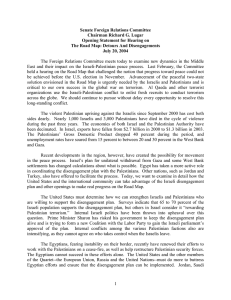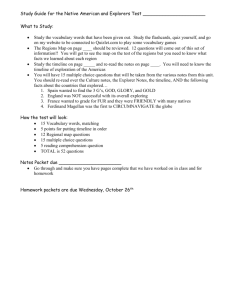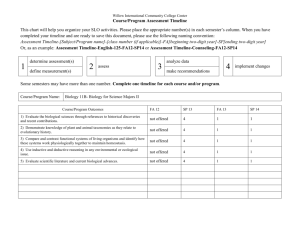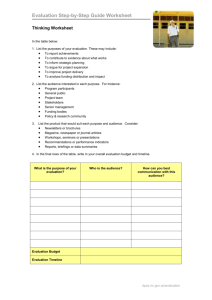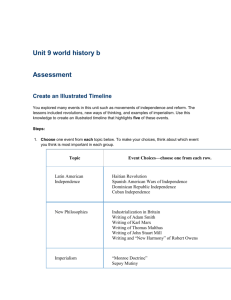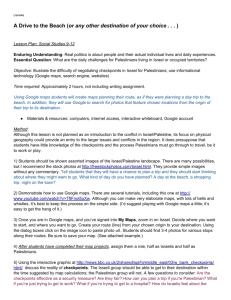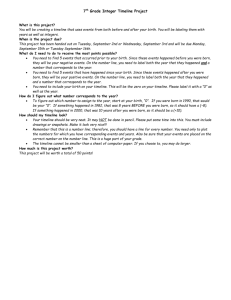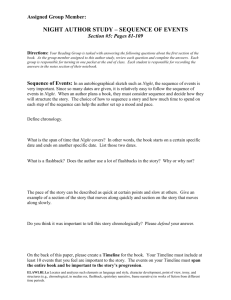Roots of Conflict
advertisement
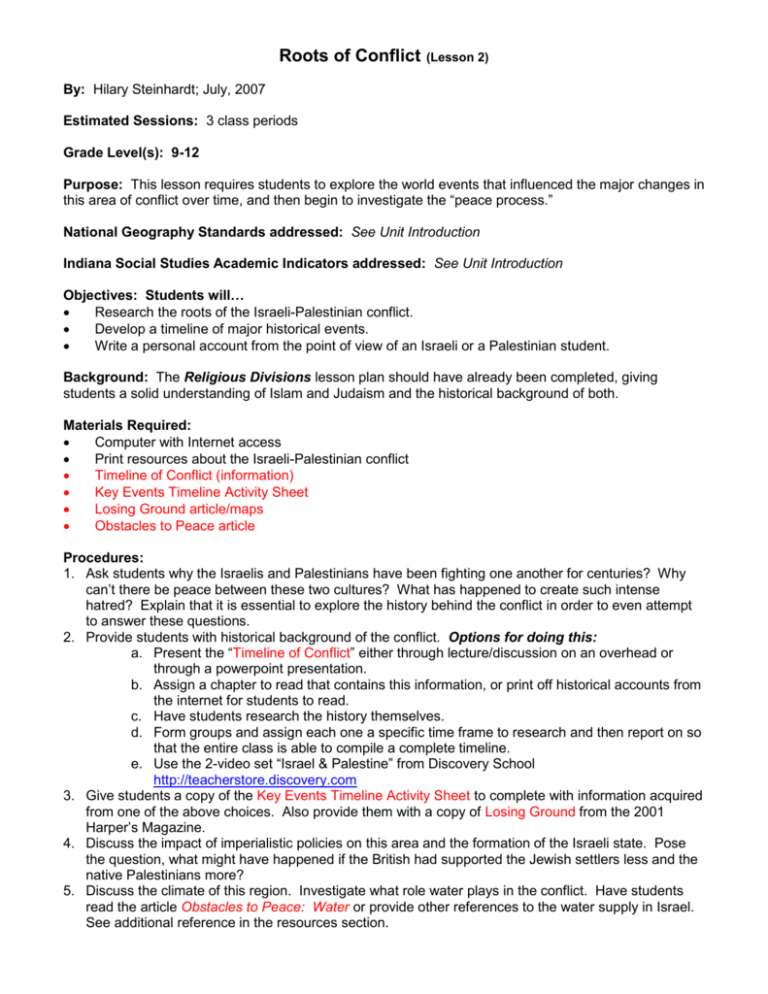
Roots of Conflict (Lesson 2) By: Hilary Steinhardt; July, 2007 Estimated Sessions: 3 class periods Grade Level(s): 9-12 Purpose: This lesson requires students to explore the world events that influenced the major changes in this area of conflict over time, and then begin to investigate the “peace process.” National Geography Standards addressed: See Unit Introduction Indiana Social Studies Academic Indicators addressed: See Unit Introduction Objectives: Students will… Research the roots of the Israeli-Palestinian conflict. Develop a timeline of major historical events. Write a personal account from the point of view of an Israeli or a Palestinian student. Background: The Religious Divisions lesson plan should have already been completed, giving students a solid understanding of Islam and Judaism and the historical background of both. Materials Required: Computer with Internet access Print resources about the Israeli-Palestinian conflict Timeline of Conflict (information) Key Events Timeline Activity Sheet Losing Ground article/maps Obstacles to Peace article Procedures: 1. Ask students why the Israelis and Palestinians have been fighting one another for centuries? Why can’t there be peace between these two cultures? What has happened to create such intense hatred? Explain that it is essential to explore the history behind the conflict in order to even attempt to answer these questions. 2. Provide students with historical background of the conflict. Options for doing this: a. Present the “Timeline of Conflict” either through lecture/discussion on an overhead or through a powerpoint presentation. b. Assign a chapter to read that contains this information, or print off historical accounts from the internet for students to read. c. Have students research the history themselves. d. Form groups and assign each one a specific time frame to research and then report on so that the entire class is able to compile a complete timeline. e. Use the 2-video set “Israel & Palestine” from Discovery School http://teacherstore.discovery.com 3. Give students a copy of the Key Events Timeline Activity Sheet to complete with information acquired from one of the above choices. Also provide them with a copy of Losing Ground from the 2001 Harper’s Magazine. 4. Discuss the impact of imperialistic policies on this area and the formation of the Israeli state. Pose the question, what might have happened if the British had supported the Jewish settlers less and the native Palestinians more? 5. Discuss the climate of this region. Investigate what role water plays in the conflict. Have students read the article Obstacles to Peace: Water or provide other references to the water supply in Israel. See additional reference in the resources section. 6. After students have completed their research, have them write a personal account, such as a letter or journal entry, from the point of view of an Israeli or Palestinian student. The accounts can be written in the present day or in the past, but they must reflect a major event in the history of the conflict and they should include several details based on research. Challenge students to consider how it must feel to live in the midst of such a conflict. Assessment: Key Events Timeline Activity Sheet Personal account essay Adaptations/Extensions/Call-Out: Have students write a few short paragraphs in response to the information provided by the Losing Ground maps. (ie -What if the Palestinians had accepted the 1947 partition plan?) Go into greater detail regarding the climate of this region, analyzing climographs Form groups and have each group research the peace attempts and present to the class. (ie-Camp David Accords, the Mitchell Report, etc.) Assign additional research into the water supply problem. Resources: Via Dolorosa – Simplified timeline of events (ends at 1999) http://www.pbs.org/viadolorosa/history.html PBS “Promisses” Timeline http://www.pbs.org/pov/pov2001/promises/timeline.html News story (print and video) about a Palestinian family who allowed their son’s organs to be transplanted to Israelis after Israeli police accidentally shot him in the head. Palestinian’s organs go to Israel http://news.bbc.co.uk/2/hi/middle_east/4417354.stm The Geopolitics of Middle East Water: The fate of a Middle Eastern nation can depend on secure control of its water supply http://www-geology.ucdavis.edu/~GEL115/115CHXXMideastwater .html Historic Political Borders of the Middle East http://www.pbs.org/wgbh/globalconnections/mideast/maps/pol.html Israeli-Palestinian Maps – great historic and current maps http://www.israelipalestinianprocon.org/mapintro.html Israel & the Palestinians Key Maps http://news.bbc.co.uk/hi/english/static/in_depth/world/2001/israel_and_palestinians/key_maps/ Middle East Human Rights Websites http://mec.sas.upenn.edu/resources/rights.html BBC News - Middle East Crisis http://news.bbc.co.uk/1/hi/in_depth/middle_east/2001/israel_and_the_palestinians/default.stm Day-by-day guide to the 1967 war http://news.bbc.co.uk/2/shared/spl/hi/guides/457000/457035/html/default.stm Middle East Media Websites http://mec.sas.upenn.edu/resources/media.html
